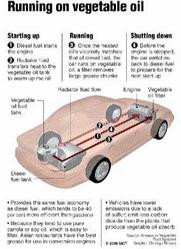Latoya Grindley, Features Writer

Gas prices are on the rise, and taxi drivers, like other motorists, are feeling the pinch. Hugh Burgher, a cabbie for more than three years, says soaring petrol costs have hit his business - and life in general - hard.
Burgher's regular hours are from 9 a.m.-5 p.m., but when there's a cash crunch, he works well beyond that time. The number of trips he makes, mostly in the Corporate Area, forces him to fill up at service stations at least twice per week. This requires him to fork out $4,000 at the pumps.
"Gas raise high, so you get less for your money in terms of your earnings. Gas is nearly $80 per litre. About two years ago, I could full my tank with just $2,000 or $3,000," Burgher said.
Contributors to high prices
Geopolitical instability in the Middle East and Nigeria, major oil-exporting countries, has contributed to skyrocketing gasolene prices. Attempts to wean the world off oil dependency by focusing on biofuels such as ethanol have fuelled a food crisis and rising cost of living.
On Tuesday, oil prices slumped below US$129 per barrel after hitting US$133 last week. Grim outlooks have projected year-ending records ranging from US$150-$200 per barrel.
Burgher is calling for an increase in taxi fares, but says that decision lies with his cabbie association. Fares, he says, are tacked to distance travelled.
"The company is looking into it right now and any increase we get has to be approved by the company itself," Burgher added.
The Government recently approved a 25 per cent increase in route-taxi fares, which was met with resentment by some cabbie groups, who contended that the hike could not adequately cover operational costs.
latoya.grindley@gleanerjm.com

